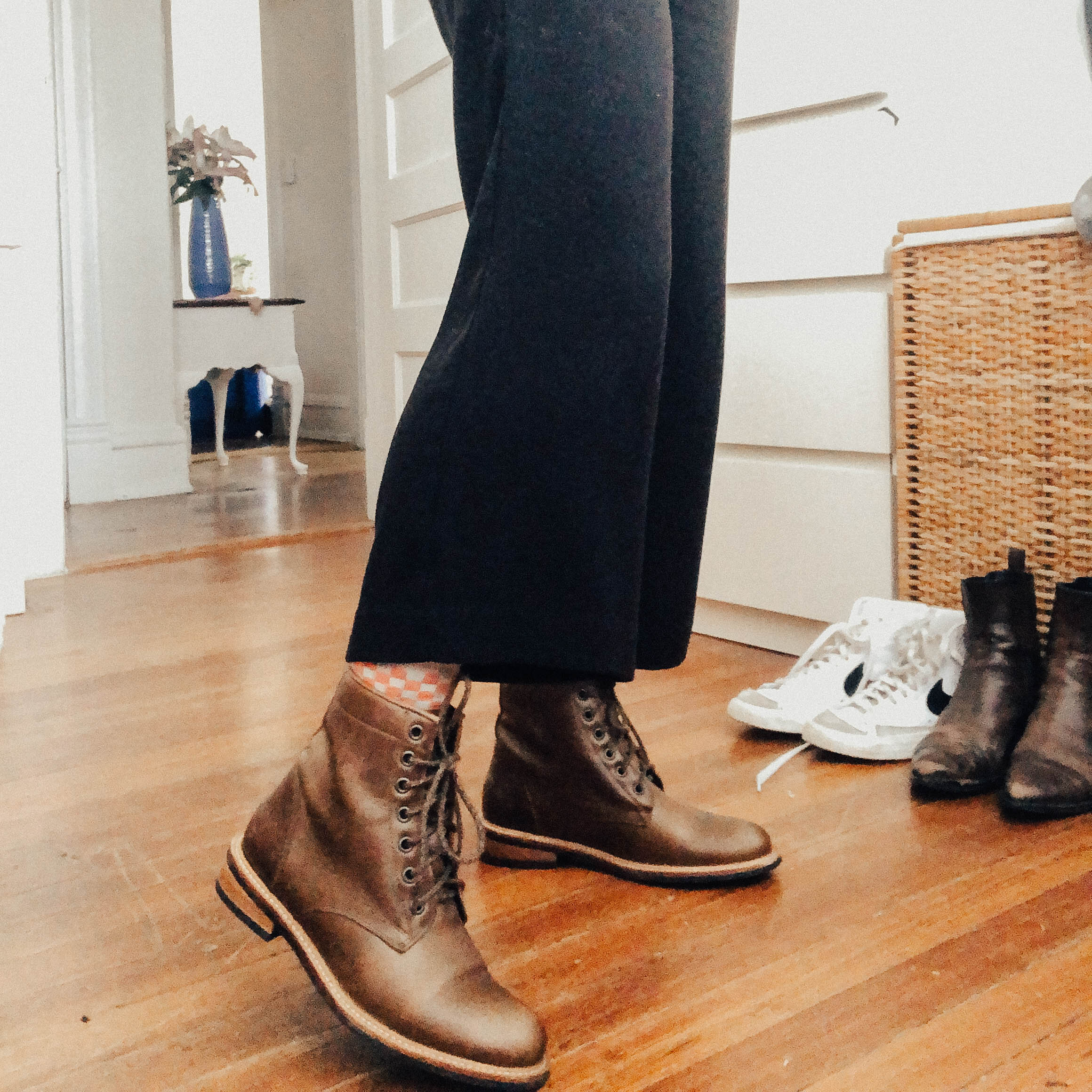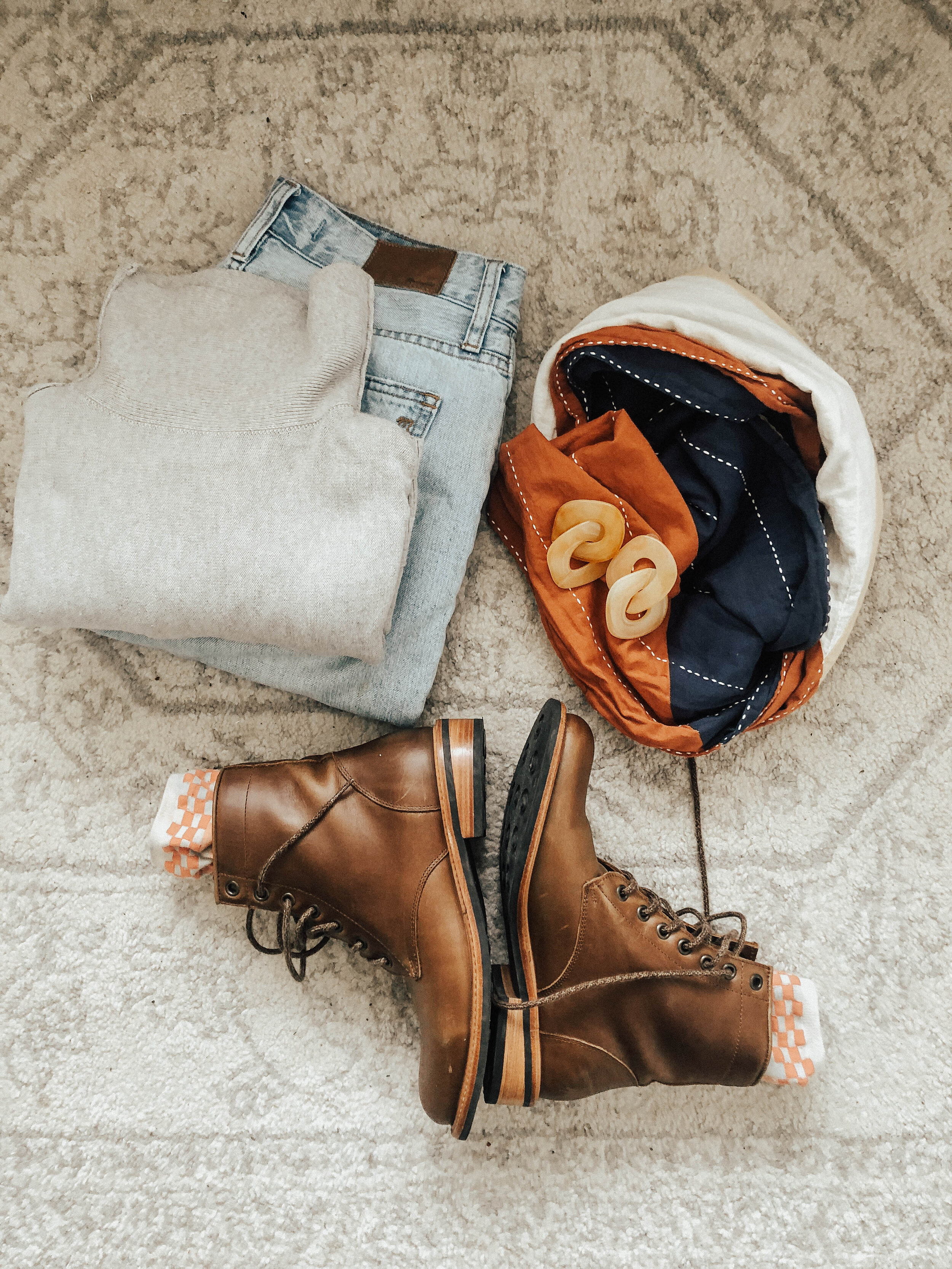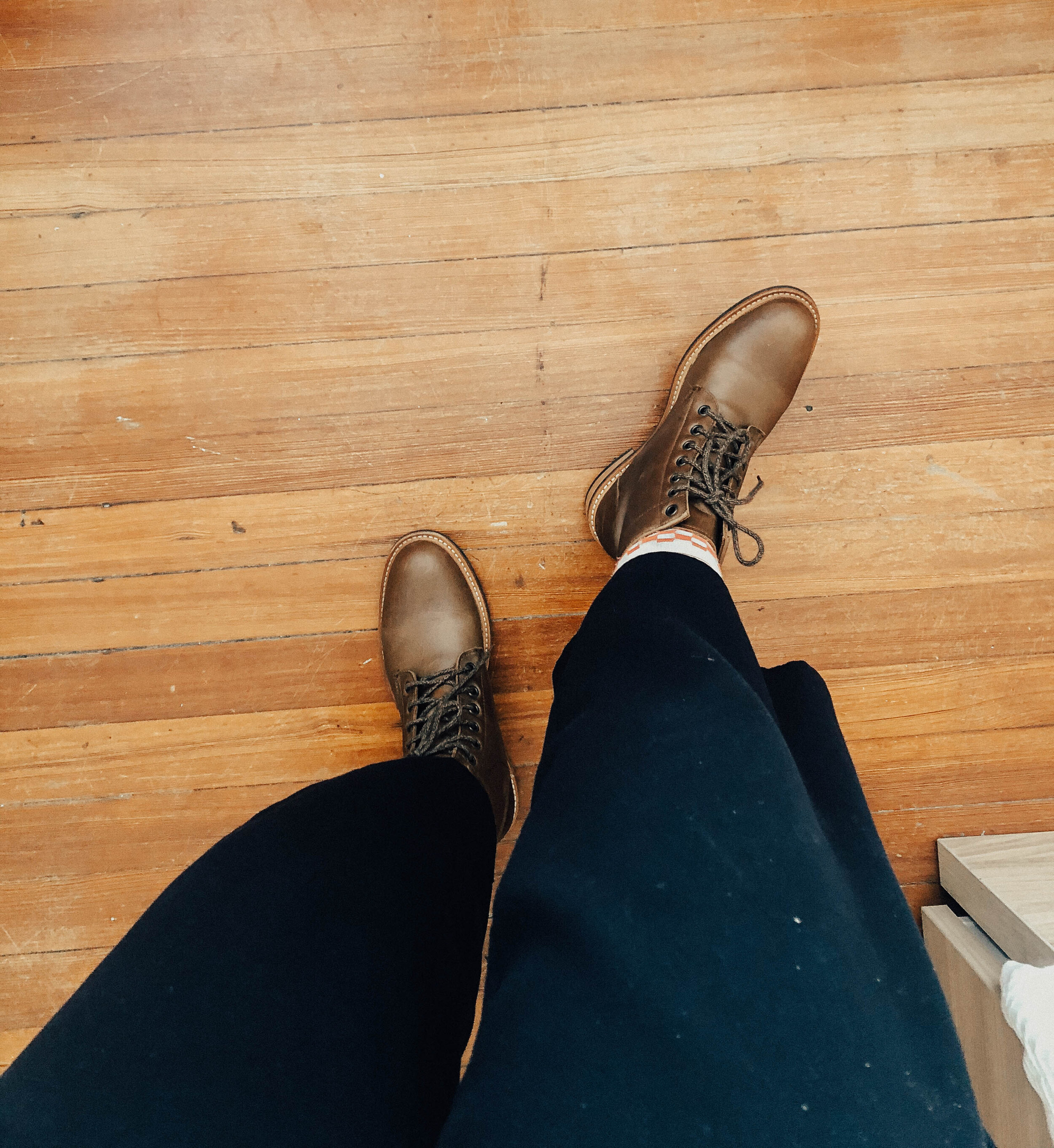Get to know Nisolo: Setting the pace for ethical fashion brands
Nisolo has been one of my favorite ethical fashion brands for several years now. They are timeless in their styles, extremely durable and incredible quality and they are consistently creating sustainability goals that are unique for the fashion industry! You can learn so much from this brand with their website being a model of transparency and also how they work bettering their Nashville community as well as communities where they have factories located — like Peru, Mexico and Kenya.
One of my favorite things that Nisolo is doing, is partnering with other brands to raise awareness around their Lowest Wage Challenge. Over the last few years they’ve been working to report and improve wages within their supply chain and engaging with other brands to do the same. Based on their reporting, “…it’s estimated that less than 2% of the 75 million people working to make the clothes we put on our bodies every day earn a living wage that covers their most basic needs.” Campaigns like these are a call to action for brands like Nisolo to improve as well as to help us as consumers understand what really goes on behind-the-scenes and how we must use our purchases to shift how we have always done things!
You’ll read a little more about it below, but overall, I believe as a shopper, it’s important to notice brands like Nisolo to build trust for what you’re purchasing. By posting the lowest wage of their supply chain, we can learn what it looks like to work in different parts of the fashion industry and different parts of the world. And from there, we are able to know what to look for and continue to stand up for change with other brands!
Check out the interview below on what Nisolo is up to and some favorite products for December —
What does ethical fashion mean to you all at Nisolo?
Ethical fashion is intrinsically connected with social, cultural, and environmental justice. Everything we make has an impact on people and the planet. For us, ethical fashion is:
Measuring and knowing our impact on everyone who interacts with our products (i.e. farmers, tanners, producers, employees, and consumers), in addition to the natural resources used to create them.
Uplifting the dignity of the people who make our products by paying 100% living wages, and giving back more to the planet than we take away by measuring, reducing, and offsetting 100% of our carbon emissions.
You are an advocate for fair wages within the fashion industry. What is something you want others to know about this, if they are just starting off shopping ethically?
It is estimated that less than 2% of the people who make the clothes on our bodies earn a living wage (Source: The True Cost, 2015). This means that 98% of workers in the fashion industry are likely being held in systemic poverty and cannot meet their most basic needs. And, 75% of these workers are women between the ages of 18 and 24 (Source: Fashion Revolution, 2017). 93% of brands do not pay living wages capable of covering the basic needs of factory workers (Source: Clean Clothes Campaign, 2020).
This must change, and the only way it will is by you, consumers, demanding brands to pay living wages. Last year, we partnered with ABLE to launch the Lowest Wage Challenge so that you could demand more from their favorite brands. We invite you to check it out here.
“Pushing the fashion industry in a more sustainable direction requires collaboration”
With this focus on human rights, labor and community development through your wages program, what shifts have been your favorite to see in the industry?
Sustainability has become a growing priority for more consumers around the world recently. According to a 2019 study by Global Fashion Agenda:
More than a third of consumers report they have already switched from their preferred brand to another because it credibly stands for positive environmental and/or social practices.
More than 50% of consumers plan to switch brands in the future if another brand acts more environmentally and socially friendly than their preferred one.
75% of consumers view sustainability as extremely or very important.
We are encouraged by this trend, and are grateful to begin seeing more brands addressing their impacts on people and the planet.
Although 2020 has been unexpected, what was a highlight for you all this year?
Since March, the coronavirus pandemic has shaken up the fashion industry. With stay at home orders and the closing of retail stores around the world, brands suspended and canceled over $40 Billion worth of orders, and even refused to pay for products that had already been made. This left factories with no choice but to lay off millions of workers, most of whom are young women with dependents and no safety net or other livelihood options. The pandemic has spotlighted the fragility of our current fashion system, and is requiring us to reimagine and revolutionize the way we produce and consume our clothes. While the consequences of COVID-19 have been catastrophic, we believe 2020 has been a seminal year for exposing injustices that have been around for decades, and will ultimately accelerate positive systemic change across the industry.
“The pandemic has spotlighted the fragility of our current fashion system, and is requiring us to reimagine and revolutionize the way we produce and consume our clothes.”
And more for the holidays - how do you choose what brands to partner with for the Ethical Marketplace?
We started the Ethical Marketplace to make sustainable shopping more accessible for consumers. With all of the greenwashing today, it can be hard to distinguish whether brands are actually doing effective social and environmental work, or if their marketing is just a facade. We partner with brands who create beautiful products while maintaining the highest level of social and environmental responsibility. We vet all partner brands prior to working with them to ensure they comply with our robust Code of Conduct, which includes paying a living wage and measuring and reducing their environmental impact. Pushing the fashion industry in a more sustainable direction requires collaboration, and our Ethical Marketplace has been a great platform for affecting positive change.
Thanks for chatting! What’s something that you are working on for the future of Nisolo?
We have a new exciting initiative we’re rolling out in 2021 that will have a significant impact on the industry. That’s all we can share about it for now.
Aside from that, we’re amplifying our conservation efforts as we re-certify through Climate Neutral early next year. We’re also beginning to manufacture our leathers with some of the most sustainable tanneries in the world. And our SS21 line will be our biggest yet.
Favorite winter styles —
Currently: BOGO sale going on for the holidays! Buy 1 get 1 50% off.




